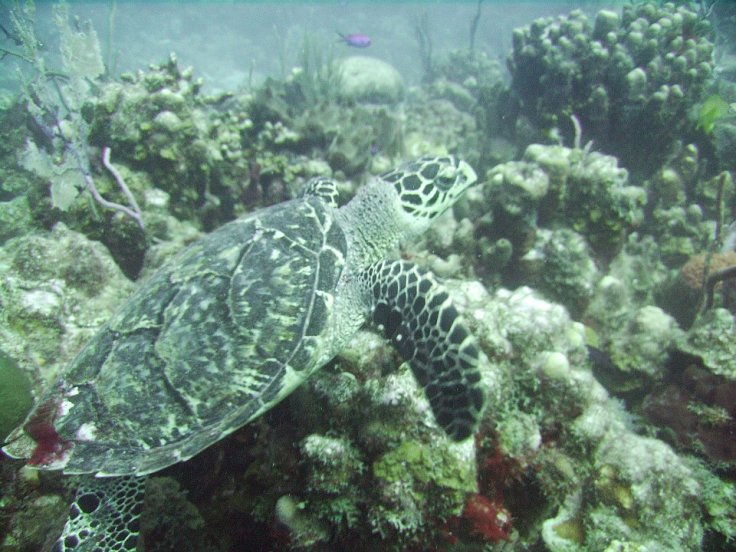
Singapore houses several species of wild animals and many such creatures are spotted regularly in its surroundings, like otters, snakes and even crocodiles. Last week, a group belonging to another species began its life in Singapore. These are none other than Hawksbill turtles.
Authorities said on Tuesday that more than 100 baby turtles hatched on a beach in Singapore before being released into the sea. This is great news for environment enthusiasts as the Hawksbill turtle is a critically endangered species.
The nest of these rare turtles was discovered in November in Sentosa, which is a popular resort island south of the Singapore mainland. Authorities erected a barrier after discovering the nest, to keep the turtles safe from predators.
Officials regularly inspected the turtle nest and ensured its security, states Sentosa Developmental Corporation, as reported by Daily Mail.
The eggs, which were 106 in number, hatched finally on Friday. Officials carried out some tests, after which they were sent down to the beach and into the vast sea.
This rare and beautiful sight is not the first of its kind in the city-state. Previously, Hawksbill turtle nests have been found twice on Singapore beaches since last August. However, this was the first such occurrence in Sentosa in eight years.
The Hawksbill turtle population has been threatened by man-made activities such as pollution, coastal developments, fishing and poaching. Currently, the IUCN Red List categorizes them as 'Critically Endangered'.

The exotic species is named such because of its narrow pointed faces and can be found in tropical regions, especially around coral reefs. They are favorites of hunters and poachers as their body parts can be used to make turtle soup. Their shells are also used in a powdered form in some desserts. Other uses include making combs and ornaments from the shell.
The critically endangered species has been listed under Appendix I of the Convention on International Trade in Endangered Species, which means any import, export, killing, capture, or harassment of these turtles is illegal. The United States Fish and Wildlife Service, as well as National Marine Fisheries Service, has protected the species under the Endangered Species Act 1970.
Conservation of Hawksbill turtles is now carried on locally too and the US government has established many recovery plans for the protection and increase in the population of these marine creatures.









